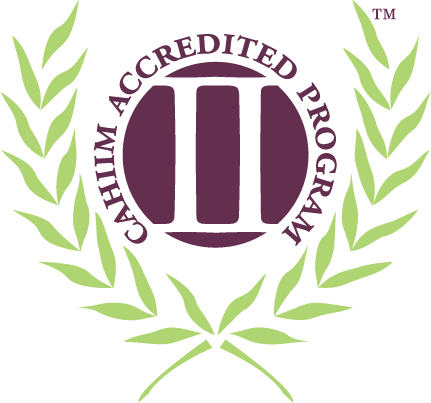Online Master of Science in Health Informatics Concentration in Applied Data Analytics
The online MS in Health Informatics (MSHI) concentration in Applied Data Analytics at Boston University’s Metropolitan College (MET) builds upon the eight-course health informatics curriculum to focus on healthcare data processing, analysis, and visualization.
Over the last decade, massive introduction of electronic health records (EHRs) has revolutionized healthcare by enabling physicians and care providers to access comprehensive patient records and treatment history. The deployment of EHRs relies upon professionals who possess interdisciplinary knowledge of healthcare and information technology—and who can develop effective algorithms, analyze big data, and provide tools to help visualize that data for end-users.
Students who complete BU MET’s Master of Science in Health Informatics will be able to:
- Work on healthcare data, information, and knowledge management and analysis.
- Identify and address challenges and opportunities as the American healthcare system transforms into a digital, patient-centered system.
- Understand the process of healthcare information system (HCIS) acquisition, development, implementation, and support.
- Discuss ethical issues, social and organizational behavior management, and leadership skills.
- Grasp major healthcare delivery workflows and understand how HCIS changes the workflows—and how to manage that change.
- Understand common algorithms for health applications and IT components in representative clinical processes.
- Understand fundamentals of cybersecurity.
- Understand legal, security, and privacy issues related to health information management.
- Lead health IT initiatives, conduct biomedical research and design, and implement and manage advanced IT solutions.
In addition, those who complete the concentration in Applied Data Analytics will be able to demonstrate:
- Knowledge of data analytics techniques, skills, and critical thinking, and an understanding of the possibilities and limitations of their applications.
- Ability to apply various data processing techniques on healthcare data sets and engage in data analysis and visualization.
- Knowledge-discovery skills using data mining techniques and tools over large amounts of data.
Awards & Accreditations

Certified by the Committee on National Security Systems (
CNSS)
 The Health Informatics accreditor of Boston University’s Metropolitan College is the Commission on Accreditation for Health Informatics and Information Management Education (CAHIIM). The College’s accreditation for the master’s degree in Computer Information Systems, Health Informatics concentration, has been reaffirmed through 2027. All inquiries about the program’s accreditation status should be directed by mail to CAHIIM, 200 East Randolph Street, Suite 5100, Chicago, IL, 60601; by phone at (312) 235-3255; or by email at info@cahiim.org.
The Health Informatics accreditor of Boston University’s Metropolitan College is the Commission on Accreditation for Health Informatics and Information Management Education (CAHIIM). The College’s accreditation for the master’s degree in Computer Information Systems, Health Informatics concentration, has been reaffirmed through 2027. All inquiries about the program’s accreditation status should be directed by mail to CAHIIM, 200 East Randolph Street, Suite 5100, Chicago, IL, 60601; by phone at (312) 235-3255; or by email at info@cahiim.org.
 Newsweek magazine ranked Boston University’s online programs #4 in the nation in its 2023 survey.
Newsweek magazine ranked Boston University’s online programs #4 in the nation in its 2023 survey.
BU MET’s Health Informatics Program by the Numbers
- 92.6% of students enrolled in Health Informatics courses spring 2019 to fall 2020 reported a satisfaction level of 3 or above on a scale of 1 to 5 (5 being most satisfied).
- 90% of students graduating summer 2019 through spring 2020 were employed within 6 months.
- 83% of students starting summer 2019 through spring 2020 registered for a subsequent semester and 75% registered for the next academic year.
- 71% of students entering the program in 2015–2016 and 2016–2017 have graduated as of 2019–2020.
Why Choose BU’s Master of Science in Health Informatics?
 In 2025, the MSHI ranked #10 among the Best Online Master’s in Computer Information Technology Programs (U.S. News & World Report).
In 2025, the MSHI ranked #10 among the Best Online Master’s in Computer Information Technology Programs (U.S. News & World Report).
- The master’s degree in Health Informatics is the first and only health informatics program in New England to be accredited by the Commission on Accreditation for Health Informatics and Information Management Education (CAHIIM). As a CAHIIM-accredited program, the MSCIS qualifies graduates to sit for certification exams offered through the American Health Information Management Association (AHIMA), such as the Certified Professional in Health Informatics (CPHI™) and the Certified Health Data Analyst (CHDA®) exams.
- Boston University is recognized by the National Security Agency and the Department of Homeland Security as a Center of Academic Excellence (CAE) in Cyber Defense and Research.
- BU MET’s information security programs are certified by the Committee on National Security Systems (CNSS).
- Students have access to MET’s Health Informatics Research Lab (HILab), established to contribute to the improvement of health care through collaborative research and development in health informatics, bioinformatics, and clinical research.
- Students benefit from a supportive online network, with courses developed and taught by PhD-level full-time faculty and professionals with hands-on expertise in the industry.
- Small course sections ensure that students get the attention they need, while case studies and real-world projects ensure that they gain in-depth, practical experience with the latest technologies.
Career Outlook
Data Scientists
35% increase in jobs through 2032
$108,020 median annual pay in 2023
Medical and Health Services Managers
28% increase in jobs through 2032
$110,680 median annual pay in 2023
Health Information Technologists and Medical Registrars
16% increase in jobs through 2032
$62,990 median annual pay in 2023
Information Security Analysts
32% increase in jobs through 2032
$120,360 median annual pay in 2023
Computer Systems Analysts
10% increase in jobs through 2032
$103,800 median annual pay in 2023
Computer and Information Systems Managers
15% increase in jobs through 2032
$169,510 median annual pay in 2023
Computer and Information Research Scientists
23% increase in jobs through 2032
$145,080 median annual pay in 2023
Database Administrators and Architects
8% increase in jobs through 2032
$117,450 median annual pay in 2023
Bureau of Labor Statistics, U.S. Department of Labor, Occupational Outlook Handbook, at https://www.bls.gov/ooh/.htm (visited July 29, 2024).
Best Technology Jobs, 2025 U.S. News & World Report
- #1 IT Manager
- #2 Software Developer
- #3 Information Security Analyst
- #4 Data Scientist
- #5 Actuary
- #6 Computer Network Architect
- #7 Operations Research Analyst
- #8 Computer Systems Analyst
- #9 Statistician
- #10 Web Developer
- #11 Database Administrator
- #12 Computer Support Specialist
- #13 Mathematician
- #14 Computer Systems Administrator
- #15 Computer Programmer
With a forecasted compound annual growth rate of nearly 12.5% from 2021 through 2026, the healthcare IT market is expected to see revenues of more than $192 million by 2026.
Mordor Intelligence Healthcare IT Market— Growth, Trends, Covid-19 Impact and Forecast (2021–2026)
Tuition & Financial Assistance
Money Matters
Boston University Metropolitan College (MET) offers competitive tuition rates that meet the needs of part-time students seeking an affordable education. These rates are substantially lower than those of the traditional, full-time residential programs yet provide access to the same high-quality BU education. To learn more about current tuition rates, visit the MET website.
Financial Assistance
Comprehensive financial assistance services are available at MET, including scholarships, graduate loans, and payment plans. There is no cost to apply for financial assistance, and you may qualify for a student loan regardless of your income. Learn more.
Curriculum
The online Master of Science in Health Informatics concentration in Applied Data Analytics consists of 10 courses (40 credits).
Courses
Students who are declaring an MSHI concentration in Applied Data Analytics must complete five core courses, three required courses, and two concentration requirements.
Core Courses
(Five courses/20 credits)
METCS570 Biomedical Sciences and Health IT
This course is designed for IT professionals, and those training to be IT professionals, who are preparing for careers in healthcare-related IT (Health Informatics). This course provides a high-level introduction into basic concepts of biomedicine and familiarizes students with the structure and organization of American healthcare system and the roles played by IT in that system. The course introduces medical terminology, human anatomy and physiology, disease processes, diagnostic modalities, and treatments associated with common disease processes. IT case studies demonstrate the key roles of health informatics and how IT tools and resources help medical professionals integrate multiple sources of information to make diagnostic and therapeutic decisions. [4 credits]
METCS580 Health Informatics
Undergraduate Prerequisites: (METCS570) - This course presents the fundamental principles, concepts, and technological elements that make up the building blocks of Health Informatics. It introduces the characteristics of data, information, and knowledge in the domain, the common algorithms for health applications, and IT components in representative clinical processes. It presents the conceptual framework for handling biomedical data collection, storage, and optimal use. It covers the concepts of population health and precision medicine and the information systems that support them. It introduces basic principles of knowledge management systems in biomedicine, various aspects of Health Information Technology standards, and IT aspects of clinical process modeling. Students design a simple Health Informatics solution as a term project. [4 credits]
METCS581 Health Information Systems
Health Information Systems are comprehensive application systems that automate the activities of healthcare delivery including clinical care using electronic health records (EHRs), coordination of care across providers, telehealth, management of the business of healthcare such as revenue cycle management, and population health management. The course covers the functionality of these systems, the underlying information technology they require and their successful operations. It addresses challenges in this rapidly changing field such as complex data, security, interoperability, mobile technology and distributed users. The course emphasizes applied use of health information systems through case studies, current articles, and exercises. [4 credits]
METCS584 Ethical and Legal Issues in Healthcare Informatics
Laws, regulations, and ethics guide the practice of health information management (HIM) and health informatics (HI). This course introduces students to the workings of the American legal system and concepts and theories of ethics, examines the legal, ethical, and regulatory issues that impact the protection of confidentiality and integrity of patient information, and, on the other hand, the improvement of accessibility of patient information to enable healthcare providers to make informed decision based on complete patient data. We will cover laws and regulations that are central to the HIM and HI professions, including Privacy Act of 1974, the Health Insurance Portability and Accountability Act (HIPAA), the Genetic Information Nondiscrimination Act of 2008 (GINA), the Health Information Technology for Economic and Clinical Health (HITECH) Act, the Food and Drug Administration Safety and Innovation Act (FDASIA), the 21st Century Cures Act, and the Confidentiality of Alcohol and Drug Abuse Patient Records Regulations, and more. The goal is to enable HIM and HI practitioners to make effective and informed decisions that prompt patient safety and care quality improvement. [4 credits]
METCS781 Advanced Health Informatics
Undergraduate Prerequisites: (METCS570) - This course presents the details of information processing in hospitals, hospital information systems (HIS), and more broadly health information systems. It presents the architecture, design, and user requirements of information systems in health care environment. It focuses on Information Technology aspects of Health Informatics specifically addressing the design, development, operation, and management of HIS. The first part of this course covers the introductory concepts including information processing needs, and information management in health care environment. The second part covers detailed description of HIS including hospital process modeling, architecture, quality assessment, and applicable tools. The final part of the course covers management of HIS and related issues and extension of this topic to other health care organizations. The course will have a term project providing students a hands-on experience in design and research of HIS. Prereq: MET CS 580; or instructor's consent. [4 credits]
Required Courses
(Three courses/12 credits)
Undergraduate Prerequisites: (METCS625) or instructor's consent - This course introduces fundamental concepts, principles of cybersecurity and their use in the development of security mechanisms and policies. Topics include basic risk assessment and management; basic legal and ethics issues, various cyber attacks, defense methods and tools; security principles, models and components; different crypto protocols, techniques and tools, including symmetric and asymmetric encryption algorithms, hashing, public key infrastructure, and how they can be used; security threats and defense to hardware, operating systems, networks and applications in modern computing environments. Hands-on labs using current tools are provided and required. Prerequisite: METCS535 or METCS625 or instructor's consent. [4 credits]
Plus one chosen from the following pair:
METCS520 Information Structures with Java
Undergraduate Prerequisites: Prerequisites: MET CS 201, Introduction to Programming (On Campus and Blended); MET CS 200, Fundamentals of Information Technology (Online O nly) - This course covers the concepts of object-oriented approach to software design and development using the Java programming language. It includes a detailed discussion of programming concepts starting with the fundamentals of data types, control structures methods, classes, applets, arrays and strings, and proceeding to advanced topics such as inheritance and polymorphism, interfaces, creating user interfaces, exceptions, and streams. Upon completion of this course the students will be able to apply software engineering criteria to design and implement Java applications that are secure, robust, and scalable. Prereq: MET CS 200 or MET CS 300 or Instructor's Consent. Not recommended for students without a programming background. For undergraduate students: This course may not be taken in conjunction with METCS232. Only one of these courses can be counted towards degree requirements. [4 credits]
METCS521 Information Structures with Python
This course covers the concepts of the object-oriented approach to software design and development using Python. It includes a detailed discussion of programming concepts starting with the fundamentals of data types, control structures methods, classes, arrays and strings, and proceeding to advanced topics such as inheritance and polymorphism, creating user interfaces, exceptions and streams. Upon completion of this course students will be able to apply software engineering principles to design and implement Python applications that can be used in with analytics and big data. Effective Fall 2021, this course fulfills a single unit in each of the following BU Hub areas: Quantitative Reasoning II, Creativity/Innovation, Critical Thinking.
Prerequisite: Programming experience in any language. Or Instructor's consent. [4 credits]
And one more from the following*:
METCS625 Business Data Communication and Networks
Undergraduate Prerequisites: On Campus Prerequisites: MET CS 200 Fundamentals of Information Techno logy. Or instructor^s consent. ; Undergraduate Corequisites: Restrictions: MS CIS only. This course may not be taken in conjunction with CS 425 (undergraduate) or CS 535. Only CS 535 or CS 625 can be c ounted towards degree requirements. - This course presents the foundations of data communications and takes a bottom-up approach to computer networks. The course concludes with an overview of basic network security and management concepts. Prereq: MET CS 200, or instructor's consent. This course may not be taken in conjunction with MET CS 425 (undergraduate) or MET CS 535. Only one of these courses can be counted towards degree requirements. [4 credits]
METCS682 Information Systems Analysis and Design
Undergraduate Prerequisites: Basic programming knowledge or instructor's consent. - Object-oriented methods of information systems analysis and design for organizations with data- processing needs. System feasibility; requirements analysis; database utilization; Unified Modeling Language; software system architecture, design, and implementation, management; project control; and systems-level testing. Prerequisite: Basic programming knowledge or instructor's consent. [4 credits]
*MS in Health Informatics students without business data communication and networks experience are recommended to take the course MET CS 625 (the prerequisite for MET CS 695) instead of MET CS 682.
Applied Data Analytics Concentration Requirements
(Two courses/8 credits)
Those pursuing a concentration in Applied Data Analytics must take two additional courses.
Choose one from the following pair:
METAD571 Business Analytics Foundations
Prereq: AD100 Pre-Analytics Laboratory and ADR100 Introduction to R
This course presents fundamental knowledge and skills for applying business analytics to managerial decision-making in corporate environments. Topics include descriptive analytics (techniques for categorizing, characterizing, consolidating, and classifying data for conversion into useful information for the purposes of understanding and analyzing business performance), predictive analytics (techniques for detection of hidden patterns in large quantities of data to segment and group data into coherent sets in order to predict behavior and trends), prescriptive analytics (techniques for identification of best alternatives for maximizing or minimizing business objectives). Students will learn how to use data effectively to drive rapid, precise, and profitable analytics-based decisions. The framework of using interlinked data inputs, analytics models, and decision-support tools will be applied within a proprietary business analytics shell and demonstrated with examples from different functional areas of the enterprise. R, SQL, and Power BI software are used in this course. [4 credits]
METCS544 Foundations of Analytics and Data Visualization
Formerly titled CS 544 Foundations of Analytics with R.
The goal of this course is to provide students with the mathematical and practical background required in the field of data analytics. Probability and statistics concepts will be reviewed as well as the R tool for statistical computing and graphics. Different types of data are investigated along with data summarization techniques and plotting. Data populations using discrete, continuous, and multivariate distributions are explored. Errors during measurements and computations are analyzed in the course. Confidence intervals and hypothesis testing topics are also examined. The concepts covered in the course are demonstrated using R. Laboratory Course. Prereq: MET CS546 and (MET CS520 or MET CS521), or equivalent knowledge, or instructor's consent. [4 credits]
And one more from the following:
METAD699 Data Mining for Business Analytics
Prereqs: AD100,ADR100,AD571
Enterprises, organizations, and individuals are creating, collecting, and using a massive amount of structured and unstructured data with the goal to convert the information into knowledge, improving the quality and the efficiency of their decision-making process, and better positioning themselves in the highly competitive marketplace. Data mining is the process of finding, extracting, visualizing, and reporting useful information and insights from both small and large datasets with the help of sophisticated data analysis methods. It is part of business analytics, which refers to the process of leveraging different forms of analytical techniques to achieve desired business outcomes through requiring business relevancy, actionable insight, performance management, and value management. The students in this course will study the fundamental principles and techniques of data mining. They will learn how to apply advanced models and software applications for data mining. Finally, students will learn how to examine the overall business process of an organization or a project with the goal to understand (i) the business context where hidden internal and external value is to be identified and captured, and (ii) exactly what the selected data mining method does. R, SQL, and Power BI software are used in this course. [4 credits]
METCS555 Foundations of Machine Learning
Formerly titled CS 555 Data Analysis and Visualization with R.
This course provides an overview of the statistical tools most commonly used to process, analyze, and visualize data. Topics include simple linear regression, multiple regression, logistic regression, analysis of variance, and survival analysis. These topics are explored using the statistical package R, with a focus on understanding how to use and interpret output from this software as well as how to visualize results. In each topic area, the methodology, including underlying assumptions and the mechanics of how it all works along with appropriate interpretation of the results, are discussed. Concepts are presented in context of real world examples. Recommended Prerequisite: MET CS 544 or equivalent knowledge, or instructor's consent. [4 credits]
Admission & Prerequisite Information
Admissions
Visit the Metropolitan College Graduate application page to learn more and apply.
Prerequisites
Applicants are not required to have a degree in computer science for entry to a program within the Department of Computer Science. Upon review of your application, the department will determine if the completion of prerequisite coursework will be required, based on your academic and professional background.
Those without a background in healthcare must complete the free, self-paced Medical Terminology Pre-Lab (MET HE 100). The pre-lab provides the basic understanding of medical terminology necessary to advance in the study of Health Informatics. This laboratory will help ensure that students from non-medical backgrounds have the fundamental knowledge of human anatomy, pathologies associated with it, and medical terminology.
Those without a background in information technology must complete the following prerequisite:
METCS200 Introduction to Computer Information Systems
This course is a technically-oriented introductory survey of information technology. Students learn about basic computer information, different types of business systems and basic systems analysis, design and development. Students also study basic mathematics, software development and create simple Java programs. [4 credits]
A maximum of two graduate-level courses (8 credits) taken at Metropolitan College before acceptance into the program may be applied towards the degree.

Guanglan Zhang
Associate Professor and Chair, Computer Science; Coordinator, Health Informatics
PhD, MEng, Nanyang Technological University, Singapore; BS, Luoyang Institute of Technology

Scott Arena
Master Lecturer, Computer Science
MS, Boston University; BS, Merrimack College

Eric Braude
Associate Professor and Director of Digital Learning, Computer Science
PhD, Columbia University; MS, University of Miami; MS, University of Illinois; BS, University of Natal (South Africa)
View all Faculty

Lou Chitkushev
Associate Dean, Academic Affairs; Associate Professor, Computer Science; Director, Health Informatics and Health Sciences
PhD, Boston University; MS, Medical College of Virginia; MS, BS, University of Belgrade

Eugene Pinsky
Associate Professor of the Practice, Computer Science; Coordinator, Software Development
PhD, Columbia University; BA, Harvard University

Suresh Kalathur
Assistant Professor, Computer Science; Director, Analytics
PhD, Brandeis University; MS, Indian Institute of Technology; BS, Regional Engineering College (Warangal, India)

Vijay Kanabar, PMP
Associate Professor, Computer Science and Administrative Sciences; Director, Project Management
PhD, University of Manitoba; MS, Florida Institute of Technology; MBA, Webber College; BS, University of Madras, India; PMP (Project Management Professional), Project Management Institute

Kia Teymourian
Assistant Professor, Computer Science; Coordinator, Programming Languages
PhD, Freie Universität Berlin; MS, BS, Berlin University of Technology (TU-Berlin)

Shengzhi Zhang
Associate Professor, Computer Science
PhD, Penn State University; BS, Tongji University (Shanghai, China)

Yuting Zhang
Assistant Professor, Computer Science; Coordinator, Information Security
PhD, Boston University; MS, BS University of Science and Technology Beijing
Getting Started
To learn more or to contact an enrollment advisor before you get started, request information using the button below and tell us a little about yourself. Someone will be in touch to answer any questions you may have about the program and detail the next steps in earning your degree. You can also start your application or register for a course at Metropolitan College.
 Certified by the Committee on National Security Systems (CNSS)
Certified by the Committee on National Security Systems (CNSS) The Health Informatics accreditor of Boston University’s Metropolitan College is the Commission on Accreditation for Health Informatics and Information Management Education (CAHIIM). The College’s accreditation for the master’s degree in Computer Information Systems, Health Informatics concentration, has been reaffirmed through 2027. All inquiries about the program’s accreditation status should be directed by mail to CAHIIM, 200 East Randolph Street, Suite 5100, Chicago, IL, 60601; by phone at (312) 235-3255; or by email at info@cahiim.org.
The Health Informatics accreditor of Boston University’s Metropolitan College is the Commission on Accreditation for Health Informatics and Information Management Education (CAHIIM). The College’s accreditation for the master’s degree in Computer Information Systems, Health Informatics concentration, has been reaffirmed through 2027. All inquiries about the program’s accreditation status should be directed by mail to CAHIIM, 200 East Randolph Street, Suite 5100, Chicago, IL, 60601; by phone at (312) 235-3255; or by email at info@cahiim.org. Newsweek magazine ranked Boston University’s online programs #4 in the nation in its 2023 survey.
Newsweek magazine ranked Boston University’s online programs #4 in the nation in its 2023 survey. In 2025, the MSHI ranked #10 among the Best Online Master’s in Computer Information Technology Programs (U.S. News & World Report).
In 2025, the MSHI ranked #10 among the Best Online Master’s in Computer Information Technology Programs (U.S. News & World Report).










